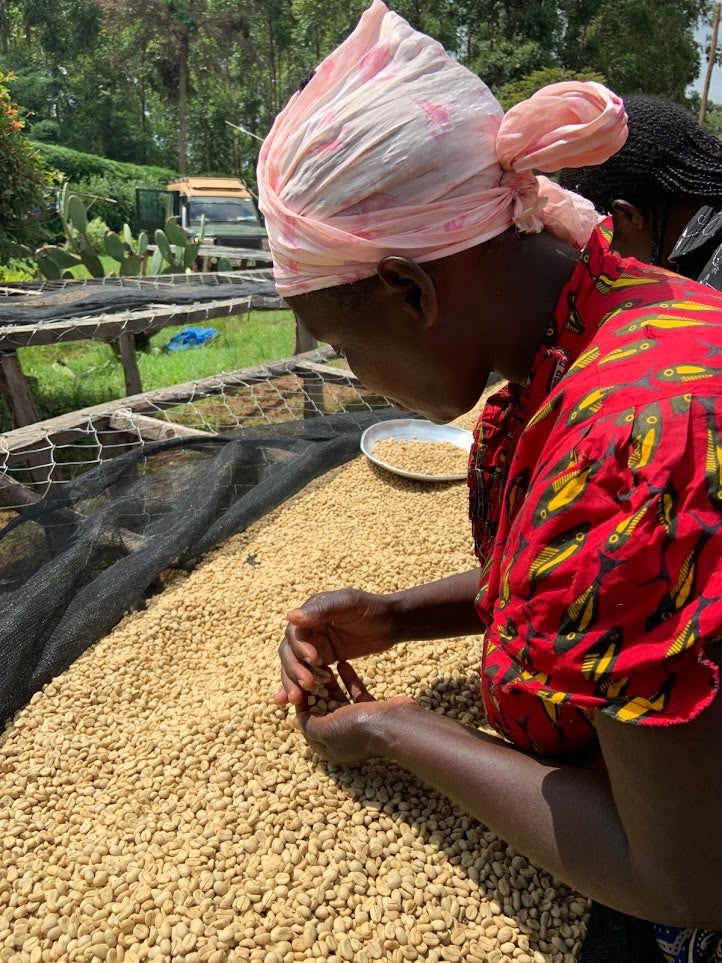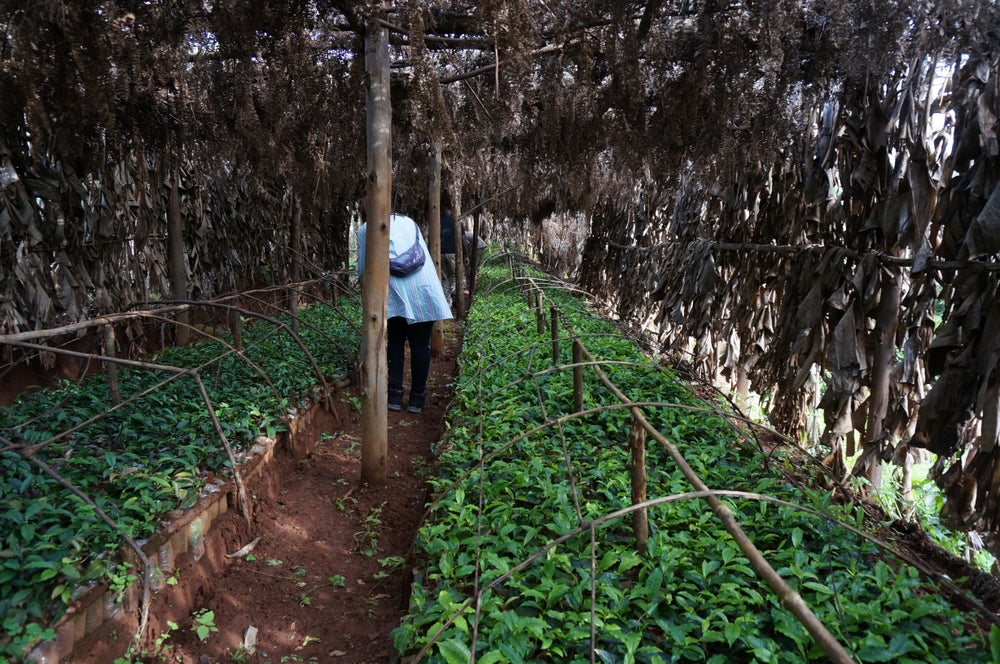About This Coffee
Mwithu Estate is located in Meru County in Eastern Kenya. Meru has an impressive and storied coffee growing history. Meru was reputedly the first county where indigenous Kenyans were able to grow coffee.
The Kenyans growing coffee in Meru in the early 1930s paved the way for the more than 600,000 smallholder farmers who grow coffee in Kenya today. The high altitude and cool climate make Meru an prime location for coffee farming.
Harvest & Post-Harvest
Processing at Mwithu Estate is iconically Kenyan. After harvest, cherry is pulped on a disc pulper and then dry fermented. Following fermentation, parchment is washed and graded before being laid to sundry on raised beds.
AA Grade
Kenyan coffees are classified by size. AA beans are the largest size. AA grade coffees are those that are 17/18 screen size, meaning that they are larger than 7.2 millimeters.
Coffee in Kenya
Though coffee growing had a relatively late start in Kenya, the industry has gained and maintained a impressive reputation. Since the start of production, Kenyan coffee has been recognized for its high-quality, meticulous preparation and exquisite flavors. Our in-country sister company, Sucafina Kenya, works with farmers across the country to ensure these exceptional coffees gain the accolades they deserve.
Today, more than 600,000 smallholders farming fewer than 5 acres compose 99% of the coffee farming population of Kenya. Their farms cover more than 75% of total coffee growing land and produce nearly 70% of the country’s coffee. These farmers are organized into hundreds of Farmer Cooperative Societies (FCS), all of which operate at least one factory. The remainder of annual production is grown and processed by small, medium and large land estates. Most of the larger estates have their own washing stations.
Most Kenyan coffees are fully washed and dried on raised beds. The country still upholds its reputation for high quality and attention to detail at its many washing stations. The best factories employ stringent sorting practices at cherry intake, and many of them have had the same management staff in place for years.

